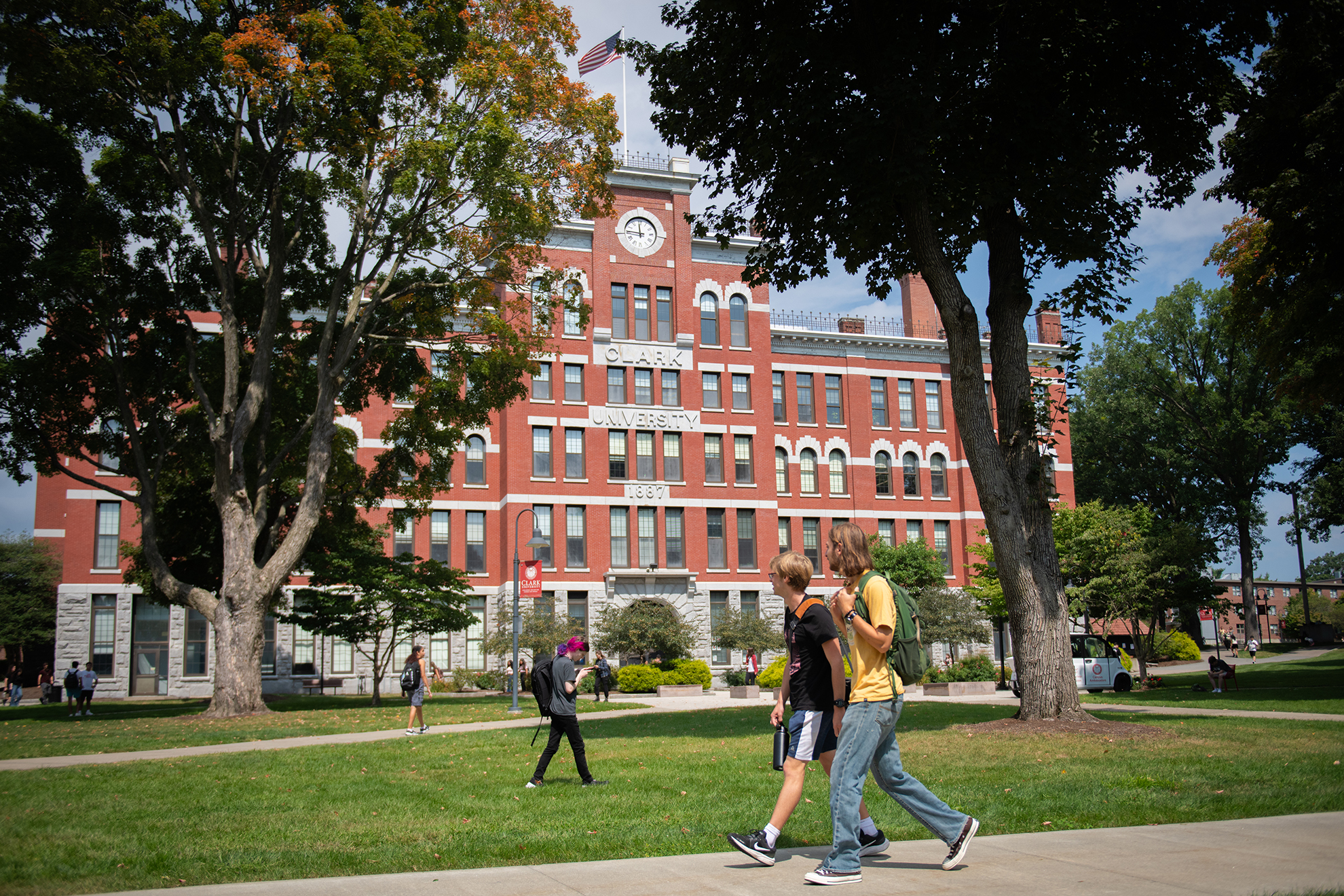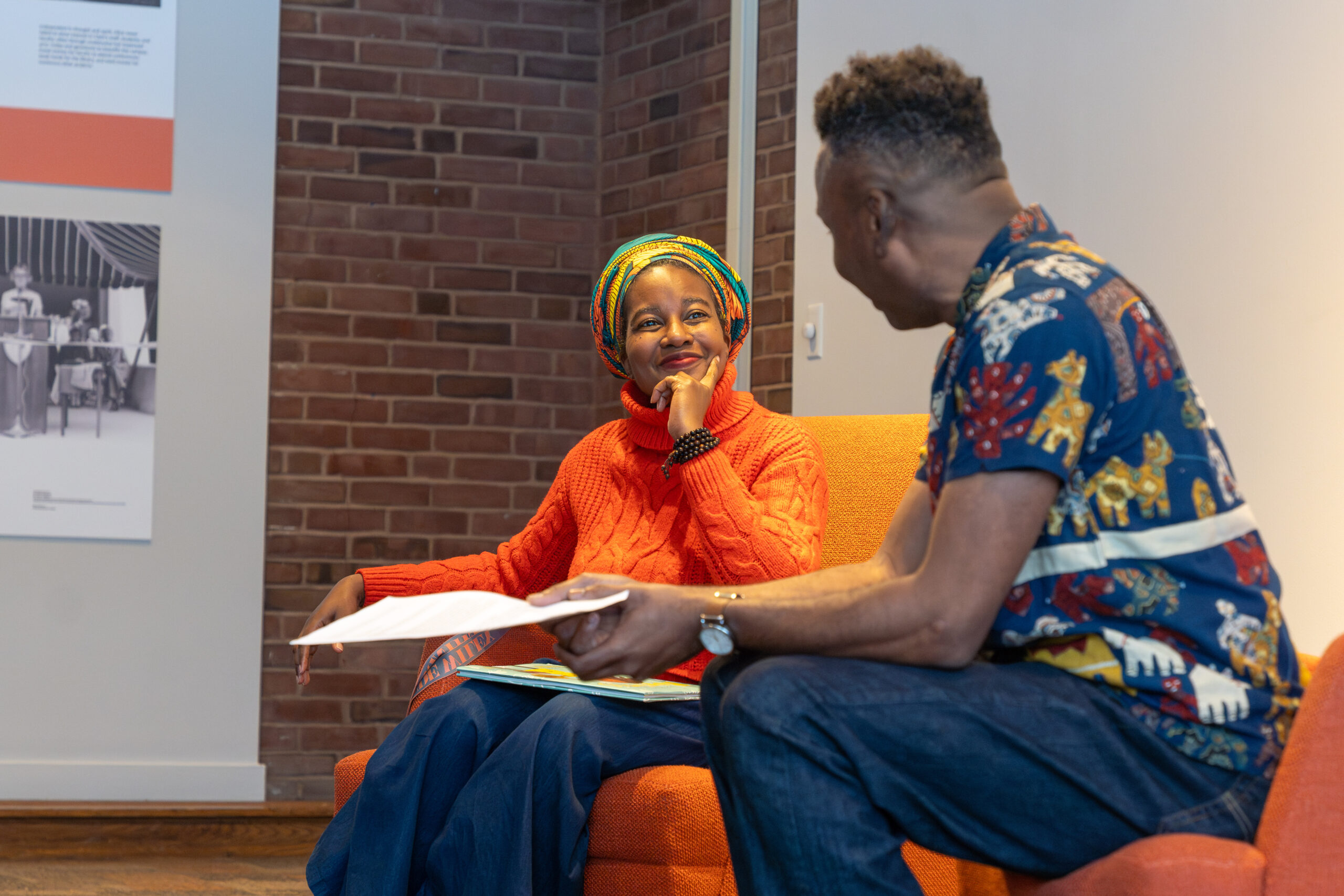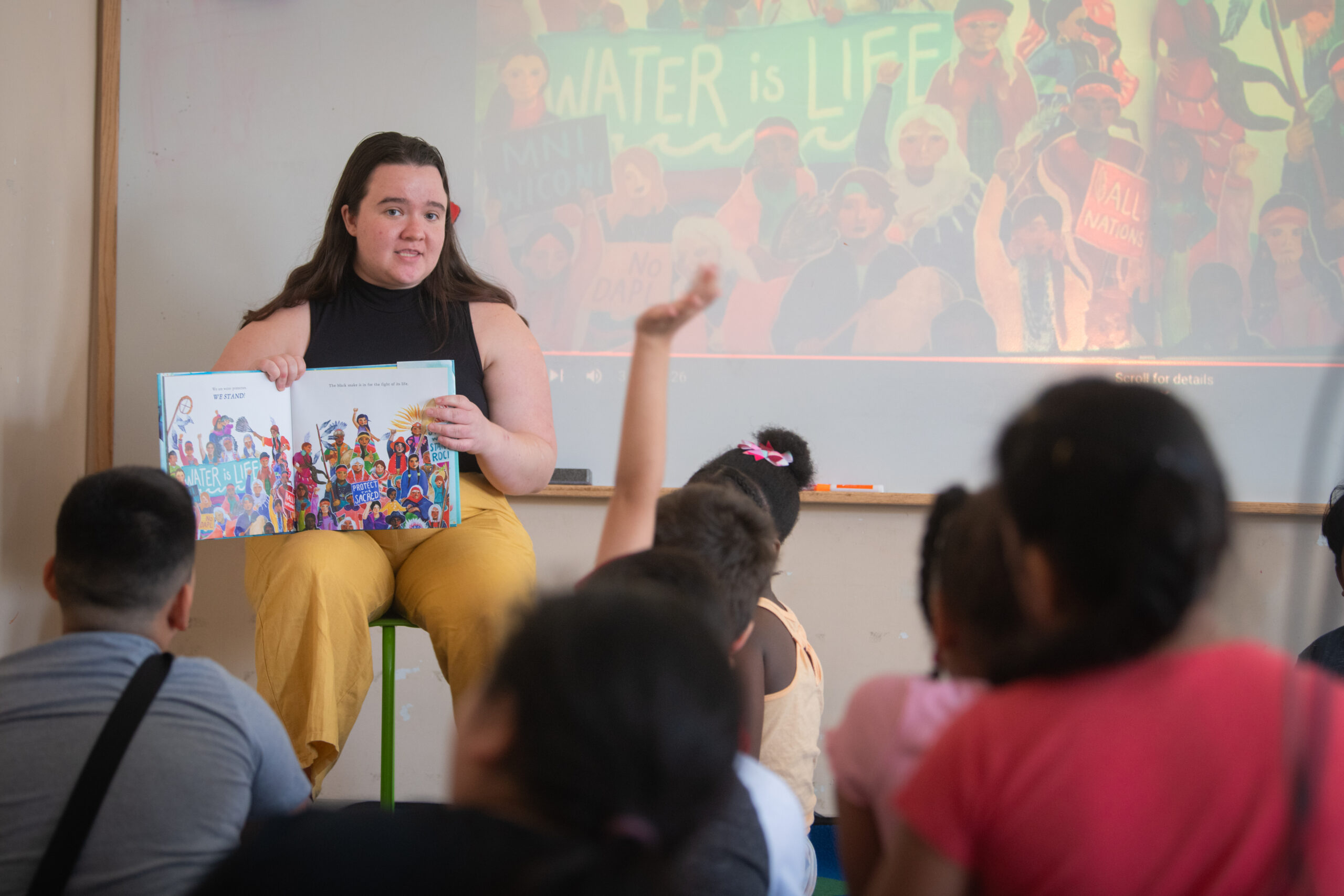In partnership with Clark University, city high school will focus on college readiness
Gov. Deval Patrick visits with students at the Claremont Academy, where he announced $225,000 in Innovation Schools Fellowship funding, May 9.Massachusetts Gov. Deval Patrick presented an Innovation Schools Fellowship grant to the Claremont Academy, a high school at 15 Claremont Street in Worcester, on May 9.
Principal Ricci Hall (’97, M.A.Ed. ’98) led Patrick, Secretary of Education Matthew Malone, and several education dignitaries on a brief tour and classroom visit before kicking off a press conference and official welcome. “You’ve heard the advice, ‘hope for the best and work for it,’ and I think what is happening at Claremont Academy stands as a really excellent example of that,” Hall said.
“Education is our calling card here in Massachusetts,” Patrick began. Discussing the achievement gap that exists for many disadvantaged students, he continued: “We need all children to reach for their best and highest potential in order for our whole economy and our whole society to thrive, now and in the future. We need to innovate in order to better educate. And that’s where everyone here comes in. In your efforts and interest in pursuing Innovation School status, you’re bringing college into the reach of all students.”
The announcement for $225,000 in state Innovation School Fellowship support included Worcester’s Claremont Academy as well as schools in Malden and Hudson, each receiving $75,000. “I congratulate all the winners of these innovation grants for the work you will do to lift us all,” Patrick concluded. The grant provides support for a resident “fellow” to facilitate a yearlong process to position Claremont to become an Innovation School focused on college readiness (a priority in the grant). As an Innovation School, Claremont would be granted a certain measure of autonomy to implement its plan to develop a college-going culture and college preparation for students, in partnership with Clark University and others.
The grant proposal was a joint process involving Principal Hall, Instructional Coach Bob Knittle, Worcester Public Schools Superintendent Melinda Boone and Chief Academic Officer Marco Rodrigues, and Thomas Del Prete, Director of the Adam Institute for Urban Teaching and School Practice at Clark. As part of the process, these officials were interviewed at the state Department of Elementary and Secondary Education.
The University Park Campus School (UPCS) was one of the starting points for the Innovation School idea, which is legislated in the 2010 “Act Relative to the Achievement Gap.” By becoming an Innovation School, Claremont would join UPCS, Goddard Elementary, and Woodland Academy as neighborhood Innovation Schools working in partnership with Clark.
“We have been partners in the process of redirecting and rebuilding Claremont initiated by Superintendent Melinda Boone in spring 2012, working closely with principal Ricci Hall and school faculty to help make Claremont a place of powerful learning for students and adults,” Del Prete said. Support from both the Adam Institute and Clark’s Hiatt Center for Urban Education, directed by Kate Bielaczyc, has come in several forms: summer professional development for the entire school staff; courses for teachers; a ‘college success program’ for students that includes Clark students in tutoring roles and sessions on the Clark campus; and a collaborative research and self-assessment process, he pointed out. “That Claremont is now positioned to develop as an Innovation School is a good sign of the progress of the school and our partnership.”
According to the Gov. Patrick’s office, the Innovation Schools funding now supporting more than 45 schools across the Commonwealth aims “to further the Administration’s commitment to close persistent achievement gaps, promote innovative and bold strategies in public schools, give students greater access to high-quality education and maintain Massachusetts’ position as a world leader in education.”
“We applaud the work at Claremont and are proud of Clark’s partnership there, which is allowing scholars at Clark an opportunity to help develop a seamless pathway – from a student’s entry to schooling, through to college and even on to their next steps,” said Nancy Budwig, Associate Provost and Dean of Research at Clark University.
Founded in 1887 in Worcester, Massachusetts, Clark University is a liberal arts-based research university addressing social and human imperatives on a global scale. Nationally renowned as a college that changes lives, Clark is emerging as a transformative force in higher education today. LEEP (Liberal Education and Effective Practice) is Clark’s pioneering model of education that combines a robust liberal arts curriculum with life-changing world and workplace experiences. Clark’s faculty and students work across boundaries to develop solutions to complex challenges in the natural sciences, psychology, geography, management, urban education, Holocaust and genocide studies, environmental studies, and international development and social change. The Clark educational experience embodies the University’s motto: Challenge convention. Change our world. www.clarku.edu




